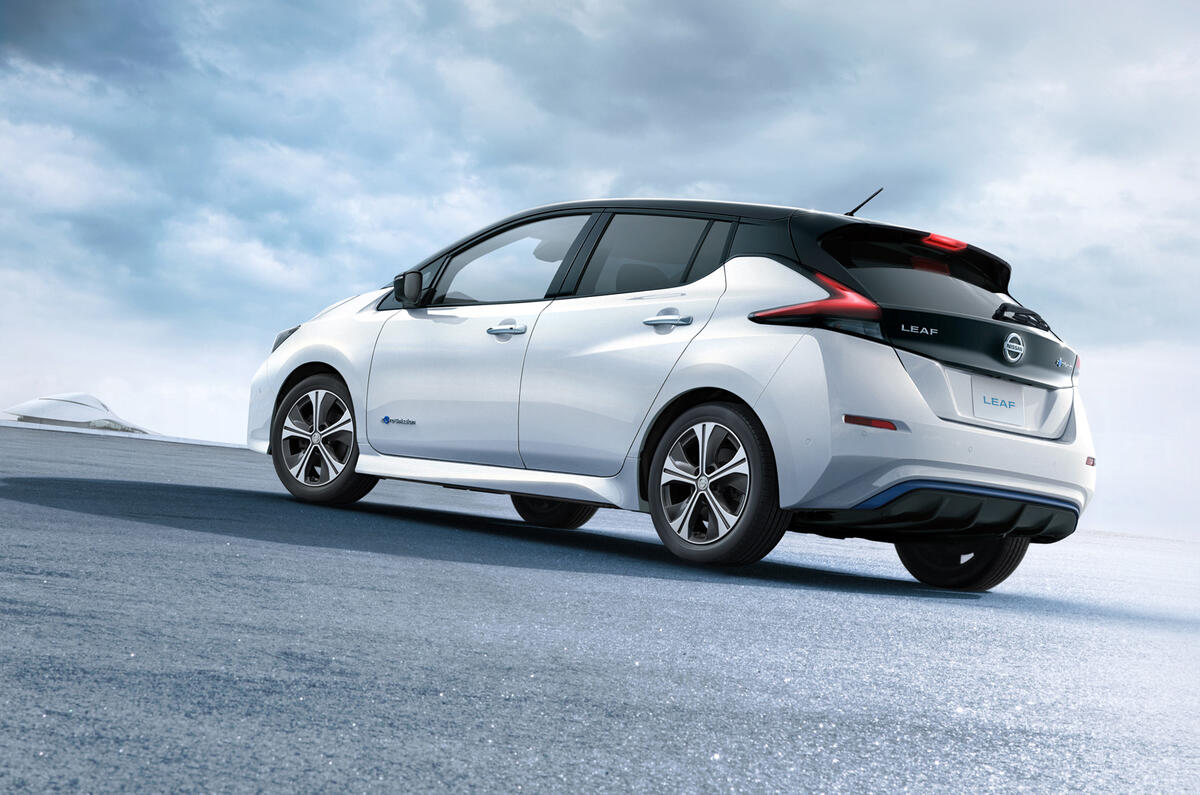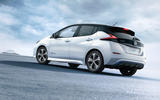The second-generation Nissan Leaf electric car can now be ordered in Britain, with prices starting from £21,990 for the entry-level Nissan Visia model.
That price includes the UK Government's £4500 grant for zero emission vehicles. Also taking the grant into account, the Acenta model costs £24,290 and the N-Connecta model costs £25,990. Top of the range is Tekna, which starts from £27,490 once the grant is applied.
Available with the new Leaf is a limited-run Zero model, which is priced from £26,490 (including the government grant) and is only available in 1500 units.
UK reservations opened on 1 January, soon after the order total in Europe surpassed more than 10,000 cars. First UK deliveries are due in February.
Click here for our review of the new Nissan Leaf

The Leaf is already the world’s best-selling all-electric car, with more than 283,000 units produced for the previous model. But Nissan has heavily reworked the new car to take on increasing competition in the fast-growing electric vehicle sector. The new Leaf is powered by a 147bhp motor – 40bhp more than the 2011-2017 Nissan Leaf – that produces 199lb ft. It can achieve 0-62mph in around eight seconds – just over three seconds faster than the current car.
In the new Leaf is a floor-mounted 40kWh lithium-ion battery – compared with a choice of 24kWh and 30kWh batteries in the old car – and Nissan says it has a New European Driving Cycle (NEDC) range of 235 miles on a single charge. That’s 80 miles more than the outgoing range-topping 30kWh battery and 111 miles more than the entry-level Leaf.


































Join the debate
Add your comment
The bolt / ampera-e is not
The bolt / ampera-e is not available in right-hand drive and is more expensive.It has a bigger 60 kilowatt hour battery therefore a longer range. The 2019 Nissan Leaf will have this size battery.
another depreciation hit!
With the introduction of the new battery-pack Nissan has dealt a terrible financial blow to owners of existing leaf(s- leaves?): the car is already expensive to buy but to suffer brick-like depreciation at trade-in time will make many people recoil and look elsewhere.
Progress is either too fast or it is sold too expensively; either way, electric car don't need this kind of negative perceptions on the money front: they have enough detractors as it is! Nisan and others would do well to adjust their sales policies; the market might just start properly?
New battery pack?
New battery pack? it's an entirely new model. Do you suggest they keep the current model/battery going for another 7 years just so current owners of Leaf's don't feel let down?
e-NV200 Combi should not be overlooked
Isnt the real value the e-NV200 Combi with 5 or seven seats?
Same drivetrain as new Leaf, much more interior room and practicality, and...cheaper. It's not a large van either, smaller than many MPVs, eg. C4 Picasso and SMAX
Also, its a more 'realised' electric vehicle. In that electric vehicles should be far more space-efficient than combustion-powered cars - batteries and electric motors take up far less space than engine, ancilliaries, exhaust systems, etc. etc.